I know you are looking at the title and thinking, “Whhaaa?!!! Has this chick gone off her rocker? Math manipulatives are one of the best practices when moving from conceptual to abstract understanding!”
Yes. I am serious. No, I am not crazy. Bear (Bare? Grrr…that homophone is hairy!) with me. I PROMISE I have a logical reason.
Over the years I have written pretty extensively about guided math and meeting with small groups during math time (you can see some posts here and here)….but what about the entire math block? I have “talked” about it in bits and pieces, but not a big picture.
So today, and the next few posts as well, I am going to share some ideas on how to make it all work.
Find the Time
I think the MOST difficult piece of any math block is simply finding time. I have found that my best years I taught math were the years I had 60 -75 minutes of math time. I know that might not always be possible, but it certainly made planning MUCH easier.
Following the workshop model, begin with a whole group mini lesson, move into independent work time/ small groups, and then end with a share time. This can be a bit harder to apply in math, especially with requirements such as number talks or calendar time. Calendar time and number talks can be very short and pointed and can be a great way to wrap up the math workshop as the closing.
The mini lesson is usually at the beginning of the math period. This is a whole group lesson, targeting a specific concept or skill. Make sure to utilize this time wisely. The mini lesson really shouldn’t be any longer than 15 -20 minutes at the most.
During the Mini Lesson I Recommend:
During the Mini Lesson I DO NOT Recommend:
I know. People are going to look at me like I have lost my best-practices-driven-mind. Hear me out. In order to keep within the mini lesson time frame, some concession will need to be made. This is a time for students to be exposed to grade level concepts. of course, if the entire class need remediation on a concept, you can remediate. However, keep in mind that, in most cases, the whole class will not need remediation or acceleration. Those are typically best in small groups because they can be targeted for what EACH student needs.
The Do-Do Model
During the mini lesson model and think aloud as much as possible. Use the gradual release model wisely. Are you familiar with the gradual release model? I like to call it the Do-Do Model. Catchy, right?
At its most stripped down, small math groups and math workshop is one big example of the Gradual Release model.
Math Mini Lesson- I Do (Teacher Model)
Small Math Groups/ Independent Work Time- We Do/ You Do
I DO encourage you to have students participate and practice with you (WE do), just makes sure to carefully watch the clock to allow for small groups time where the instruction and support can be more targeted (I Do and We Do).
No Math Read Alouds?!?!!?
I am a HUGE believer in reading and power of books and tying in literature into the content areas. BIG fan. However, reading aloud a book can easily take 20 minutes, especially if you discuss it at all. And if you apply it to the skill? That can easily add another 10+ minutes. This can eat into the precious small group time where you are guiding students to a deeper understanding. Also, keep in mind the kid’s attention span may not be able to read AND apply the text. Sitting for 35 minutes most likely will not work for many of your students.
Instead, consider reading the book one day and apply the book the next day.
Another idea is to read aloud math literature on special days. I also did NOT do math workshop on Fridays. I choose not to follow the model on this day. Instead, I would do read alouds, fun projects, introduce math games, and even assess. I purposely used this time differently and it was a great change of pace for my students. It allowed me to work in some of those engaging, but longer tasks.
It also allowed to me to constantly to use formative assessments to make sure students were getting what they needed. This means I did NOT have to sacrifice read alouds, as long as I planned my time carefully.
No Math Manipulatives?
This is honestly a personal preference, but I promise I have a strong (and good IMHO) reason for it. As a general rule, I did NOT give my students math manipulatives to use during the mini lesson. I found they were too distracting and time consuming when trying to teach a short lesson. They also take a great deal of time to pass out and clean up when there are 22 kids. There are ALWAYS buckets full of ones blocks EVERYWHERE on the carpet afterwards, but never in the boxes when kids need them to model the number 19. #AmIright?
Instead, I used virtual manipulatives on the Activ board to model the skill or concept. The picture above is from my Place Value Interactive Notebook and More pack which has ready made mini lessons and matching interactive notebook pages!
In the old days, before my beloved Activ board, I used my overhead and the transparent manipulatives or magnetic manipulative on the whiteboard. After I modeled and did my think aloud (I DO), I would ask students to help me by answer questions or coming to the board (We Do) for a short amount of time.
By organizing my lessons this way kids
- were NOT playing with manipulatives
- still participate in the lesson
- able to be active listeners since the lesson was short
So when do I use math manipulatives? In small guided groups. ALL THE TIME. I use them everyday and in every lesson with every kid. I have written expensively about small math groups. You can read about them here.
My next few posts will focus on HOW to complete an effective mini lesson and small groups lesson- with and without manipulatives!
What do you think? Do you agree with me about the math manipulatives or do you still think I am crazy?
Click here for this great pack of FREE math centers, plus get tips and updates from me!
Mandy Gregory is a 2007 and 2012 Teacher of the Year. She has taught Kindergarten- 4th grades in both the general education and inclusion settings. She is currently a 1st grade Special Education teacher. She is the owner and creator of Mandy’s Tips for Teachers website (www.mandystipsforteachers.com) and has over 13 years of teaching experience. She is married with two beautiful children.

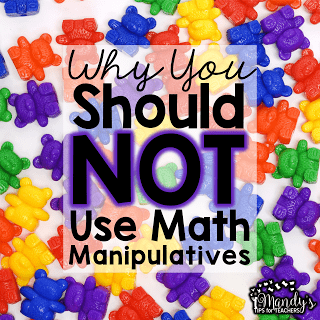
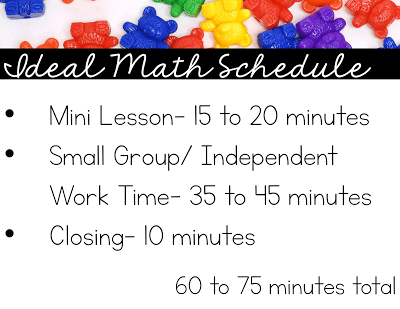
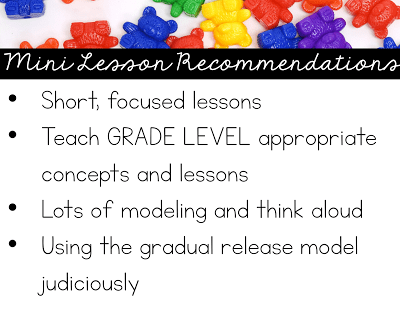
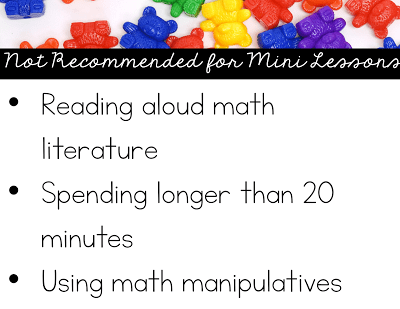

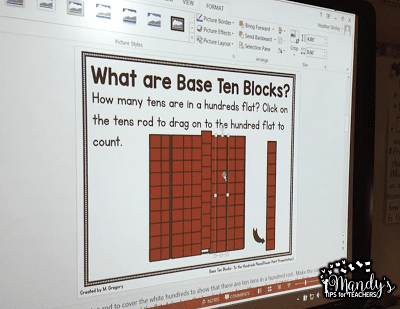

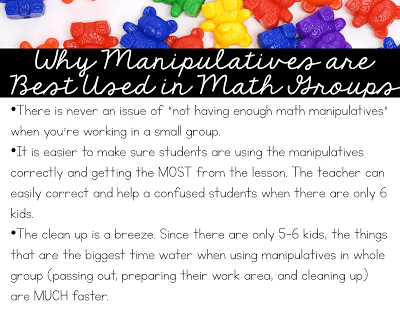
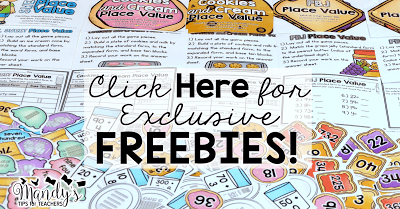
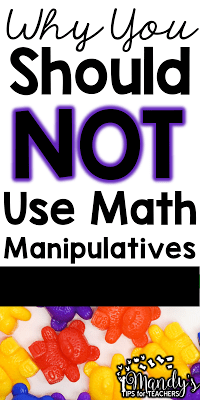
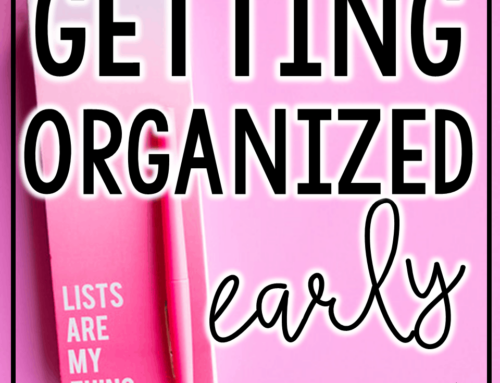
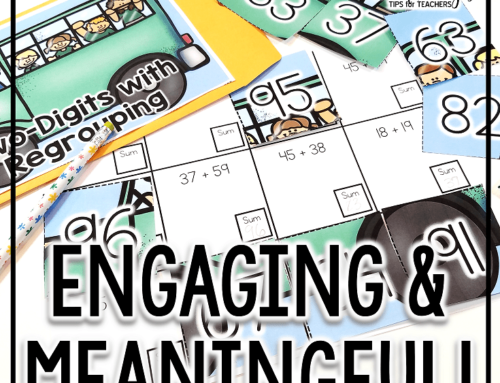
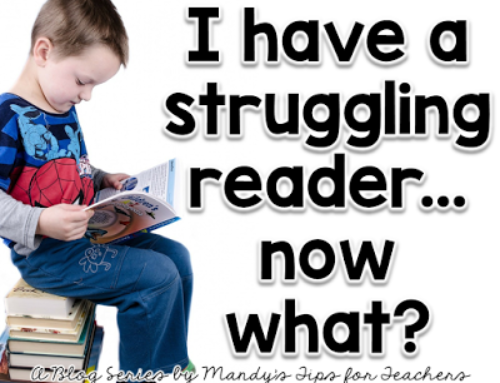
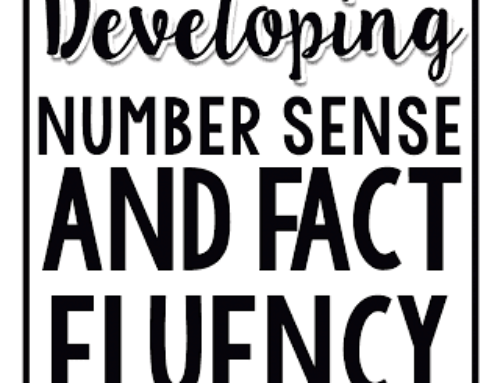

I like your ideas. I like the idea of using math manipulatives during small groups. Definitely going to try out this year. Thank you for your ideas. I was looking for a way to make my math clearer for my kids, this will do it!